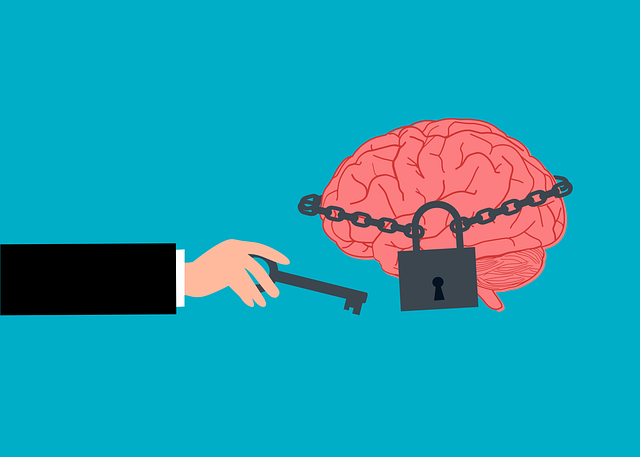Risk assessment is a vital component of mental wellness planning, utilizing evidence-based methods like Golden Dialectical Behavioral Therapy (DBT) to analyze and mitigate potential hazards. DBT combines cognitive-behavioral techniques with mindfulness practices to teach clients emotional regulation, coping strategies, and effective communication. This approach, involving individual therapy and skills training groups, enhances resilience, prevents self-harm, and improves mental health outcomes. By integrating Golden DBT into harm minimization strategies, mental health professionals can develop tailored interventions, monitor progress, and foster community collaboration for proactive risk management. Research and case studies highlight its effectiveness in treating depression, anxiety, co-occurring disorders, and improving overall well-being.
Risk assessment and harm minimization planning are essential components of comprehensive safety strategies. This article explores critical aspects of these processes, focusing on the foundational role of understanding risk assessment in safety planning. We delve into the unique contributions of Golden Dialectical Behavioral Therapy (DBT) in promoting harm minimization. Furthermore, we provide a practical guide for developing robust strategies and highlight best practices for implementation and monitoring. Real-world case studies illustrate how Golden DBT principles can be successfully applied.
- Understanding Risk Assessment: The Cornerstone of Safety Planning
- The Role of Dialectical Behavioral Therapy (DBT) in Harm Minimization
- Developing a Comprehensive Harm Minimization Strategy
- Implementation and Monitoring: Ensuring Effective Risk Management
- Case Studies: Real-World Applications of Golden DBT Principles
Understanding Risk Assessment: The Cornerstone of Safety Planning

Risk assessment is a fundamental aspect of any comprehensive safety plan, serving as the golden standard for ensuring well-being and minimizing potential harm. It involves meticulously analyzing various factors and scenarios to identify dangers and vulnerabilities. By employing evidence-based methods like those in Dialectical Behavioral Therapy (DBT), professionals can effectively navigate complex situations. This process is crucial for individuals seeking Self-Esteem Improvement, as it empowers them to take proactive measures against risks.
In the context of Mental Wellness Coaching Programs Development, risk assessment enables tailored strategies targeting Empathy Building Strategies. It fosters an environment where potential threats are anticipated and managed proactively, leading to enhanced resilience and overall mental wellness. Understanding this process is pivotal for anyone aiming to create robust harm minimization plans that resonate with their unique needs and challenges.
The Role of Dialectical Behavioral Therapy (DBT) in Harm Minimization

Dialectical Behavioral Therapy (DBT) plays a pivotal role in harm minimization planning, particularly for mental health professionals navigating complex cases. This therapeutic approach, often referred to as the Golden DBT, is designed to help individuals manage intense emotions and impulsive behaviors. By integrating cognitive-behavioral techniques with mindfulness practices, DBT empowers clients to develop effective coping strategies.
Through structured skills training in distress tolerance, emotion regulation, interpersonal effectiveness, and mindfulness, DBT facilitates emotional healing processes. This is especially beneficial for those struggling with self-harm or suicidal ideation. Additionally, its focus on building resilience and improving communication allows mental health professionals to integrate this therapy into comprehensive risk management planning, enhancing their ability to support at-risk individuals effectively.
Developing a Comprehensive Harm Minimization Strategy

Developing a comprehensive harm minimization strategy is an integral part of effective risk assessment, especially within the context of mental health support. Golden Dialectical Behavioral Therapy (DBT) offers a robust framework for achieving this goal by combining cognitive-behavioral techniques with compassion cultivation practices. By integrating Stress Reduction Methods, DBT empowers individuals to develop coping mechanisms that balance acceptance and change, fostering resilience in the face of adversity.
This approach not only focuses on individual therapy but also encourages skills training groups, where participants learn valuable tools for emotional regulation, distress tolerance, and effective communication. In light of these practices, Mental Health Policy Analysis and Advocacy play a pivotal role in ensuring accessibility to such therapeutic interventions, thereby promoting better outcomes for individuals at risk.
Implementation and Monitoring: Ensuring Effective Risk Management

Implementing risk assessment and harm minimization plans is a dynamic process that requires continuous evaluation and adjustment. Golden Dialectical Behavioral Therapy (DBT) offers valuable tools for this purpose, emphasizing the balance between acceptance and change. By integrating self-care practices into daily routines, healthcare providers can prevent burnout and maintain optimal performance. Regular monitoring of risk factors and harm minimization strategies is crucial; it involves regularly reviewing patient progress, identifying potential triggers, and making necessary interventions.
Community outreach programs play a significant role in amplifying these efforts. By extending support beyond clinical settings, these programs ensure that at-risk individuals receive the help they need. Effective implementation requires collaboration between healthcare professionals, community leaders, and affected populations. Through ongoing assessment and adaptive planning, it is possible to create a supportive ecosystem that effectively manages risks and promotes positive outcomes for all involved.
Case Studies: Real-World Applications of Golden DBT Principles

Case studies from real-world applications of Golden Dialectical Behavioral Therapy (DBT) principles demonstrate their effectiveness in various contexts. These studies showcase how DBT’s core components, such as mindfulness, distress tolerance, emotional regulation, and interpersonal effectiveness skills, can be successfully implemented to support individuals with complex challenges. For instance, research has highlighted the positive impact of DBT on mood management for those struggling with depression and anxiety, showcasing improved self-awareness exercises and emotional healing processes.
Additionally, case studies illustrate the utility of Golden DBT in mitigating harm and promoting adaptive coping strategies. By fostering skills that help individuals navigate intense emotions and reduce impulsive behaviors, DBT has been proven effective in preventing self-harm and suicide attempts. This therapeutic approach, rooted in both cognitive and behavioral techniques, offers a comprehensive framework for addressing co-occurring disorders and enhancing overall well-being.
Risk assessment and harm minimization planning, guided by principles like those of Golden Dialectical Behavioral Therapy (DBT), are essential components of comprehensive safety strategies. By understanding risks, leveraging evidence-based approaches like DBT, and implementing effective monitoring, we can significantly reduce potential harm and foster safer environments. These practices, as demonstrated through real-world case studies, not only protect individuals but also enhance overall well-being and resilience.












